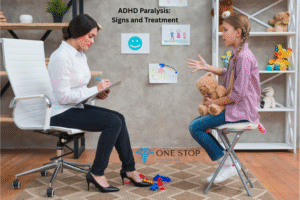Life is busy. Between work, family, and all the other things that come our way, it’s easy to feel like everything is moving too fast. Sometimes, the stress builds up before we even notice it. I’ve been there too. But over time, I learned that small changes—like practicing mindfulness and meditation—can make a huge difference in how we manage that stress and feel more in control.
The power of Mindfulness and Meditation in Mental Wellness
These aren’t just trendy buzzwords. Mindfulness and meditation are simple, practical tools that anyone can use to feel better. You don’t need fancy gear or hours of spare time. A few minutes a day can do wonders. Let’s talk about how.
Mindfulness: Being Present When Everything Feels Like a Mess
Mindfulness, simply put, is being aware of the present moment. It sounds too simple, right? But think about it—how often are we caught up worrying about the past or stressing over the future? We’re either replaying that awkward conversation in our heads or freaking out about something that hasn’t even happened yet. I’ve caught myself doing this too many times to count.
Mindfulness helps pull you back to right now. When you focus on the present, you’re not stuck in a loop of thoughts. You’re just… here. It could be as simple as noticing how your coffee smells in the morning or how the wind feels when you step outside. This simple shift can help with anxiety and make your mind feel a little clearer.
Studies back this up too. Mindfulness has been shown to reduce symptoms of anxiety and depression. It also improves focus, which is something I personally need when my brain feels like it’s in a hundred places at once.
Meditation: A Quick Fix for Mental Overload
Meditation takes mindfulness a step further. It’s like hitting the reset button for your brain. There are different types, but the goal is the same: to quiet the noise in your head.
When I first started meditating, I thought it was going to be impossible. I couldn’t sit still for more than a minute without thinking about my to-do list. But after a few tries, I noticed something. I felt calmer. Even on days when life was chaotic, those few minutes of meditation made a difference.
Research shows that meditation helps reduce stress and improves emotional health. I’m not saying it’s a magic cure for all your problems, but it definitely helps you feel more grounded. And it’s so simple. You don’t need candles or sit cross-legged (unless that’s your thing). Just find a quiet spot, close your eyes, and breathe. That’s it.
Getting Started: No Pressure, Just Start Small
I get it. Starting something new can feel overwhelming, especially when you already have too much going on. But trust me, mindfulness and meditation don’t have to be complicated. You can start right now, today, without changing much.
Here are some ways to get going:
- Start with just five minutes: You don’t need to meditate for hours. Just five minutes a day is a good start. Sit down somewhere quiet, close your eyes, and focus on your breath. If your mind wanders (and it will), just bring it back to your breathing.
- Be mindful during everyday tasks: You can practice mindfulness anywhere, at any time. Try it while you’re doing things like eating or walking. Focus on what you see, hear, or feel in the moment. It’s amazing how calming it can be just to pay attention to what’s around you.
- Try an app: If you’re not sure where to begin, apps like Calm or Headspace are super helpful. They guide you through simple meditations, and there are even ones designed for beginners.
For me, I found it easiest to just sit quietly before bed, close my eyes, and breathe. Sometimes I think about nothing. Sometimes I focus on one thought, like how thankful I am for getting through the day. There’s no wrong way to do it.
Why It Works: Real Benefits, Real Results
So, why bother? Because these practices really work. And not just for me—there’s plenty of research out there backing it up. Mindfulness and meditation can help in so many ways:
- Stress relief: Life is stressful, but mindfulness helps you respond to that stress instead of just reacting to it. It’s like learning how to pause before freaking out.
- Improved mood: I’ve noticed that when I’m consistent with mindfulness, I’m just in a better mood. It doesn’t solve all your problems, but it helps you handle them with more calm.
- Better focus: I used to get distracted easily, but mindfulness and meditation have made a difference. It helps me stay on track, even when things get busy.
- Self-awareness: These practices also teach you to check in with yourself. Instead of letting emotions control you, you learn how to notice them and manage them in healthier ways.
Take It One Day at a Time
It doesn’t take much to start feeling the benefits of mindfulness and meditation. And while it won’t solve all your mental health issues overnight, it’s a great tool to have in your back pocket when things get tough. The key is consistency. You don’t have to do it perfectly, just keep showing up for yourself a little each day.
If you’ve been feeling overwhelmed or stressed lately, I encourage you to give it a try. You’ll be surprised how much better you can feel, just by taking a few moments to breathe.
At One Stop Psychiatry, we encourage holistic approaches to mental health and are here to guide you every step of the way. If you’re ready to take control of your mental well-being, don’t hesitate to reach out to us.




